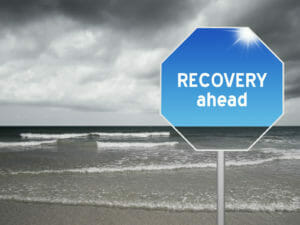How to Stay Strong During Your Addiction Recovery
 Addiction recovery is a lifelong process. It can be a perilous and exhausting journey full of triggers and potential setbacks, but it’s a journey worth making.
Addiction recovery is a lifelong process. It can be a perilous and exhausting journey full of triggers and potential setbacks, but it’s a journey worth making.
The biggest challenge of recovery is staying the course after you’ve completed treatment for your addiction. There are temptations at every turn.
There will also be plenty of bad days that will make you seek escape in your drug of choice.
Fortunately, there are ways to manage the triggers that threaten to unravel your progress.
Read on to learn how you can stay strong during your recovery.
Understand What Triggers You
This can be different for everyone. Triggers can be emotional and environmental. They can come in the form of people, places, things, or events.
Some people are triggered by increased stress, change in employment, or a particularly hard day, or week, at work.
Other sources of stress that can trigger those in recovery are dysfunctional personal relationships, school pressures, conflict with family, and significant personal loss, such as the death of a loved one.
Sometimes a trigger has nothing to do with a stressful or difficult situation. It can be something as simple as passing a bar.
Other seemingly harmless instances that can act as triggers are:
- Encountering another person who has been drinking or is high
- Being bored
- Receiving a paycheck
Avoid Triggers
Once you’ve spent some time identifying your triggers, you’ll understand how to avoid them during addiction recovery.
If there are certain places where you’ll encounter people who are indulging in what you’re trying to recover from, don’t go there. While it may seem like you have everything under control, returning to these places can initiate strong cravings and stir emotions that can throw you off track.
Associating with friends who you previously used drugs or alcohol with can be a powerful trigger. It’s a complex situation that involves social acceptance and pleasure-seeking behavior, so it can quickly become a trap. It’s best to distance yourself from these friendships.
Avoid putting yourself in situations where you’ll likely encounter your triggers. Sometimes this isn’t possible and you’ll need a plan of action to make it through without a relapse.
Coping with Triggers
There are times when a trigger situation cannot be avoided. There are also times when a trigger surprises you and you’re left feeling very vulnerable.
There are ways to help yourself deal with triggers so that your life stays on the right path.
Have a Support System
A support system of positive family and friends can:
- Keep you accountable
- Be there for you when you need to talk
- Offer companionship so you can avoid being triggered by loneliness
Meetings, counselors, and sponsors are part of your support system. They can help you through tough moments that you might feel too weak to handle alone.
Take Care of Yourself
Make your health and well-being a priority.
Eat regular, healthy meals to stave off hunger and irritability. Pass on unhealthy foods that leave you feeling lethargic.
Keep an exercise schedule. Physical activity is vital to good health. It’s also a great distraction when you’re fighting the urge to use.
Getting enough rest is essential. Sleep deprivation can lead to depression, a lack of energy, anxiety, and overall fatigue. All of these can be a hindrance to your recovery.
It is also helpful to make a list of negative consequences that could come about from relapsing. Remind yourself why you’ve chosen sobriety.
Addiction Recovery is Possible
Recovering from drug or alcohol addiction is difficult, but with time and the right kind of help, it is possible.
To learn more about addiction and recovery, visit our recovery blog.
If you’re ready to overcome your addictions and move forward, contact us at Midwest Recovery Centers today. We are here to help you reclaim your life.
Reviewed and Assessed by
Taylor Brown, B.A.Com., MAADC II
Tim Coleman, M. of Ed.




